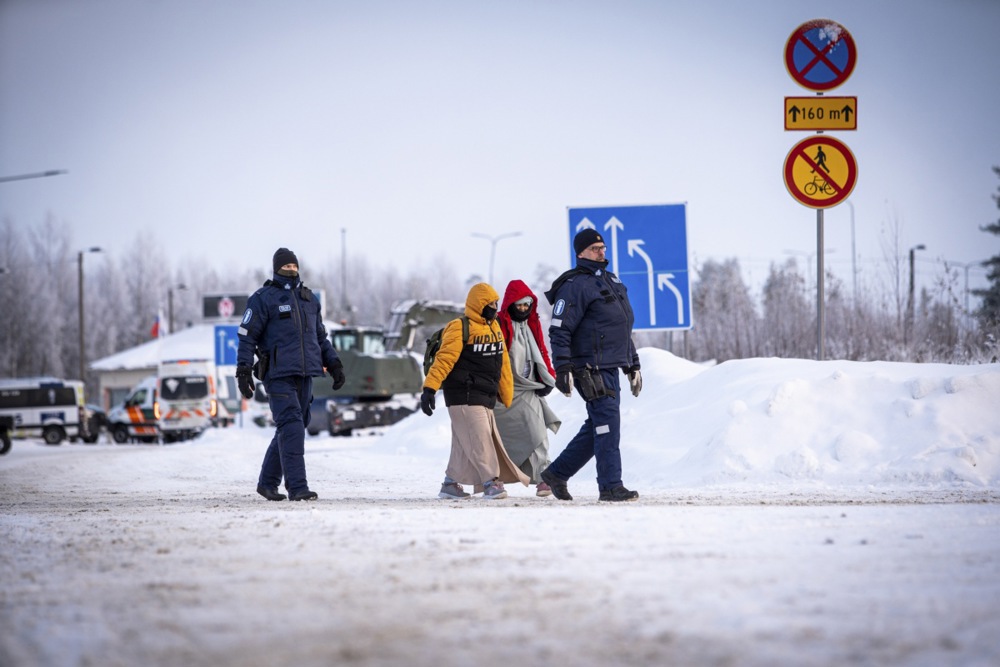The Spanish National Police confirmed on July 22 that they have dismantled a criminal organisation with the arrest of 25 individuals following an investigation launched in December 2023.
The group allegedly facilitated the irregular immigration of citizens of sub-Saharan origin by impersonating them to obtain Spanish nationality for a fee of €3,000 each. They also reportedly arranged sham marriages for €6,000 a time.
Eight alleged key members of the network are said to have been arrested — five in Málaga, two in Lorca and one in Marbella. Another 17 individuals, including alleged collaborators and clients, were also arrested in Málaga (12), Huelva (2), Madrid (1), and Vic (1).
Those arrested face charges of belonging to a criminal organisation, facilitating illegal immigration, and document forgery.
The criminal network at the centre of the arrests is said to have used false documents to impersonate migrants, with the group creating the required papers by combining the real personal info of their clients with the photographs of those it employed to impersonate them.
Police claimed that these impersonators then attended the exams required to obtain the Diploma of Spanish as a Foreign Language (DELE) and the Constitutional and Sociocultural Knowledge Test of Spain (CCSAE) on behalf of the migrants, with both tests necessary for obtaining Spanish nationality.
Additionally, for €1,000, the alleged perpetrators would stand in for migrants in the process of obtaining driver’s licences.
The network is also said to have provided residence and work permits of legally residing foreigners to those in an “irregular situation”, enabling them to work.
In 2021, the then-Spanish government released data about police investigations into so-called mafias involved in human trafficking. In 2016, there were 14 cases, 16 in 2017, 26 in 2018, 21 in 2019, and 30 in 2020.

Josema Vallejo, spokesman for the association Un Policía para el Siglo XXI (A Police for the 21st Century) comprising security professionals, said on July 23 that “criminality associated with illegal immigration is growing” in Spain.
“The mafias that traffic in people are no longer in Africa, but have established themselves in Spain, using the structures of drug trafficking networks to send people to the Canary Islands and the mainland,” the police stated.
In Spain, the Network Investigation Brigade — a force made up of 100 officers which is one of the only police units in Europe dedicated exclusively to investigating human trafficking — had previously warned that such criminality “is going to increase”.
In 2022, Frontex initiated an investigation against the NGO Proactiva Open Arms, founded by Óscar Camps, in connection with alleged human trafficking in collaboration with Libyan mafias. The case was shelved.
Open Arms sued the Spanish newspaper OkDiario after it described the organisation as a “slave ship”. The media outlet won the lawsuit.
A recent study by the Center for Sociological Research (CIS), published on July 12, revealed growing public concern about rising immigration.
More than 4,000 respondents indicated the issue had personally affected them and they considered it one of the main problems for Spain.
Immigration and the distribution of illegal immigrants throughout the country is also a source of political confrontation between parties of different ideologies.
Separatist parties such as Junts from Catalonia have refused to accept any more unaccompanied minors while the central government, led by Prime Minister Pedro Sánchez, has pushed to distribute them throughout the country.
Alberto Núñez Feijóo, the President of Spain’s opposition’s centre-right Partido Popular, has spoken out against the government’s proposed reforms of its migration framework. https://t.co/tBPBfjoOAt
— Brussels Signal (@brusselssignal) July 16, 2024





